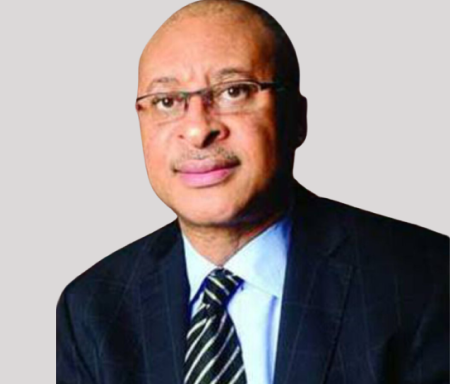Recently, an online video showed a young child who was missing. A woman found her, but instead of immediately taking her to the police, a man and a woman recorded a video of her as the child, about five years old, mentioned her name and her parents’ names. The woman would later urge Nigerians to share the video widely on social media in hopes of locating the child’s parents. Unfortunately, this pattern has become the norm on social media whenever a missing person is located by people other than the relatives.
Was the woman really helping?
Although the woman believed she was helping the child, the incident raises urgent and complex questions. Is this public display merely a new form of social media performance seeking attention, or does it reflect a deeper, desperate workaround born from widespread distrust in law enforcement?
Join our WhatsApp ChannelAs citizens increasingly turn to viral posts rather than official channels, we must ask: what does this say about the state of policing, public trust, and child protection in Nigeria today?
Asking a very young child for personal information such as her name, her father’s and mother’s names, her town, and her school, while seemingly thorough, does not equate to a reliable or legally sound verification process.
What the law says
In Nigeria, laws such as the Child’s Rights Act and the Nigeria Data Protection Act 2023 require that a child’s identity and parentage be verified through formal processes prioritizing their best interests and privacy. This includes using official documents like birth certificates or national identification linked to legal guardians, as well as obtaining parental consent before processing a child’s data.
Relying solely on a child’s verbal claims without documentation not only breaches these legal safeguards but also exposes the child to risks like trafficking or wrongful claims. Public questioning of a child outside regulated procedures circumvents the vetting roles of law enforcement and protection agencies.
The rush to social media bypasses these crucial protections, weakening the legal mechanisms meant to ensure children are safely reunited with verified families. In any functioning system, handing the child over to the police should be the first and safest step. But the glaring absence of police in this scenario raises questions about why more citizens are avoiding official channels.
Distrust or Desperation in the Woman’s Action?
The woman’s decision to bypass the police in identifying and handing over the child likely stems from a mix of motives. In today’s social media-driven culture, incidents are often turned into opportunities for attention, and her actions may reflect a broader trend of seeking visibility without regard for legal processes.
But she was not alone. A man was also heard recording the video. Their actions highlight a deeper problem: widespread distrust in the police. Many Nigerians now see the police as sidelined or ineffective, prompting citizens to resolve urgent issues independently.
This distrust is not unfounded. Police stations across the country are rarely viewed as safe places for missing children. Fears of abuse, including sexual assault in custody, are common. Corruption also plays a major role. Officers allegedly often demand bribes to file reports, and when refused, some even turn accusations on the victims themselves.
Delays in police response and lack of urgency in missing child cases further fuel public frustration. In contrast, social media provides speed, wide reach, and a direct link to the public and potential family members.
The woman’s decision thus reflects a mix of fear, mistrust, and pragmatism. With social media offering quicker results and a sense of communal effort, traditional institutions now appear slow, opaque, and unhelpful. In fact, if the police were functioning properly, she could have been arrested for this act. But in today’s Nigeria, anyone, whether right or wrong, can sidestep the police, who are now widely perceived as more interested in money than justice.
Read Also:
- 151 Senior Police Officers Face Disciplinary Panel Over Misconduct Allegations
- Armed Policemen In Soup Over Angela Okorie’s Viral Video
Government is to blame too
The question to ask is: if our security agencies are ready to take up their roles, would they not have been the best positioned to find the child? Or perhaps they were asleep at the time, since the woman said the child was found around 10 p.m. Even the police should recognize that the rise of social media requires them to put in more effort.
While many in the public may be unaware of the legal risks and consequences involved in exposing a child’s identity, the government also shares blame for the abuse and mishandling of such situations. Poor welfare, inadequate training, and the misuse of police officers for political purposes leave too few personnel available for genuine public protection.
Despite knowing that social media users are not bound by professional protocols, the government has failed to respond adequately. Unlike trained officers, online users often spread misinformation, unverified claims, or sensitive details that can compromise investigations or endanger vulnerable individuals.
The viral nature of social media values speed and visibility over accuracy, often fuelling panic, misidentification, or interference with official processes. While these platforms can rally communities, they lack the structure to handle sensitive issues responsibly, creating confusion and unintended harm.
At the core of this dysfunction is poor leadership. If the government had implemented state policing, more officers might be focused on protecting citizens at the grassroots. What we see instead is a vacuum where formal institutions have surrendered their authority to informal social media networks, which now act as both information sources and moral judges.
Decentralised National Identity as a Core Contributor
Nigeria struggles with the absence of a centralized national identity system and an efficient missing people’s network, making it difficult to trace missing children and reunite them with their families. There is no unified child ID system or biometric database for verifying parentage using fingerprints or iris scans, tools that are standard in many countries for secure identification.
While platforms like the Missing Persons Platform Nigeria exist and have recorded over 24,000 missing persons between 2018 and mid-2024, they are not integrated with biometric data or a central registry that can enable rapid verification for children.
Government efforts remain largely ineffective and dentification still depends on fragmented documents such as birth certificates, NIN-linked national IDs, and manual police checks, all of which are slow, inconsistent, and unreliable. The National Identification Number (NIN) website itself often experiences technical issues. Only recently, telecommunication companies, banks and allied services could not function effectively for several weeks, meaning that neither new accounts could be created nor existing ones verified in banks and telcos.
The same hitches were reportedly experienced for immigration services, as Nigerians were not able to renew their expired international passports or acquire new ones, all because the National Identity Management Commission (NIMC) , the body charged with identity management solutions, including NIN enrollment, updates, and verification services, was experiencing technical hitches on its website.
The implication is that all banking, telecommunication, and allied services associated with identity verification remained in abeyance: New accounts could not be effectively opened in banks. New SIM cards could not be registered by telcos – Airtel, MTN, Glo and 9Mobile – while banks, for weeks, could not open new accounts or resolve customer issues involving authentication of Bank Verification Number (BVN) and NIN. This, in other climes, would pass for a national emergency. Yet, the downtime went on for weeks without a whimper from official quarters. As of the time of writing this article (July 26, 2025), it remains uncertain whether or not NIMC has been able to sustainably revive its server.
The lack of a robust biometric system and accessible missing person’s registry means emergency responses to missing children are hampered. The child in the viral video was fortunate. Her case received public attention and ended in what appeared to be a safe reunion. But the outcome could have been tragically different. An impostor could have exploited the situation or later accessed her school for malicious purposes.
This case highlights the urgent need for reform. Citizens require widespread civic education on the proper legal channels for handling missing children. The police must go beyond merely asserting authority. They must earn public trust through accountability, transparency, and timely response. Government must also invest in a reliable identity and security infrastructure, including biometric databases and efficient reporting systems to enable quick and safe reunification.
Although social media raises awareness, it should not be the default recourse in emergencies. Strengthening formal systems and restoring trust in them is crucial to protecting vulnerable children. Only through collaboration between citizens, law enforcement, government, and digital tools can Nigeria prevent avoidable tragedies and better safeguard its most at-risk populations.
Dr Mbamalu, a Jefferson Journalism Fellow, member of the Nigerian Guild of Editors, and Media Consultant, is the publisher of Prime Business Africa
Dr. Marcel Mbamalu is a distinguished communication scholar, journalist, and entrepreneur with three decades of experience in the media industry. He holds a Ph.D. in Mass Communication from the University of Nigeria, Nsukka, and serves as the publisher of Prime Business Africa, a renowned multimedia news platform catering to Nigeria and Africa's socio-economic needs.
Dr. Mbamalu's journalism career spans over two decades, during which he honed his skills at The Guardian Newspaper, rising to the position of senior editor. Notably, between 2018 and 2023, he collaborated with the World Health Organization (WHO) in Northeast Nigeria, training senior journalists on conflict reporting and health journalism.
Dr. Mbamalu's expertise has earned him international recognition. He was the sole African representative at the 2023 Jefferson Fellowship program, participating in a study tour of the United States and Asia (Japan and Hong Kong) on inclusion, income gaps, and migration issues.
In 2020, he was part of a global media team that covered the United States presidential election.
Dr. Mbamalu has attended prestigious media trainings, including the Bloomberg Financial Journalism Training and the Reuters/AfDB Training on "Effective Coverage of Infrastructural Development in Africa."
As a columnist for The Punch Newspaper, with insightful articles published in other prominent Nigerian dailies, including ThisDay, Leadership, The Sun, and The Guardian, Dr. Mbamalu regularly provides in-depth analysis on socio-political and economic issues.











